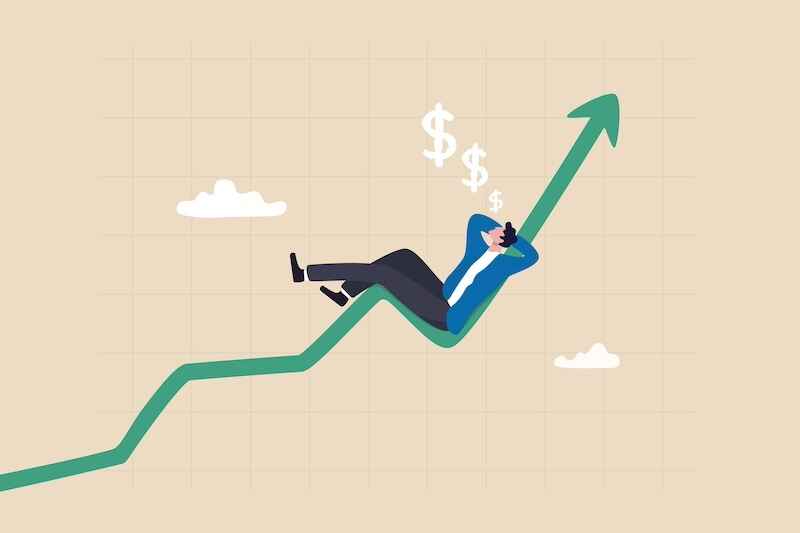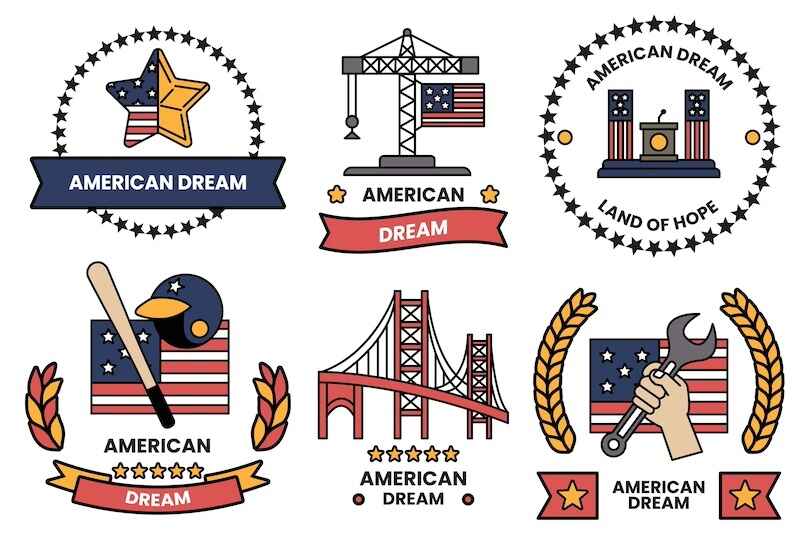The Oxford Club’s Marc Lichtenfeld has done it again.
He’s uncovered an investment opportunity that could leave the stock market in the dust, potentially outperforming it by 400%.
We’re talking about returns that could change your life overnight.
But this isn’t some fly-by-night scheme.
This investment is much safer than stocks… and completely backed by legal contract.
The problem?
This opportunity is disappearing fast.
Soon, it could be gone for decades!
Don’t miss out on this rare opportunity.
Click here to get all the details before it’s too late!
– Nicole Labra, Senior Managing Editor
In my last column, I noted how political polarization, tribalism (red team vs. blue team), and excessive partisanship are both real and damaging.
It’s a troubling development, as it leaves the public misinformed and inflames passions in ways that can be destructive.
The extreme negativity is largely new.
During the 1984 election, Ronald Reagan ran a television commercial with the famous opening line, “It’s morning again in America.”
In his speech accepting the Republican nomination in 1988, his successor George H.W. Bush compared America – with its many clubs and volunteer organization – to “a thousand points of light in a broad and peaceful sky.”
In 2016, when addressing the United Nations, President Barack Obama said, “Now is the best time in history to be alive. It’s never been healthier. It’s never been wealthier. It’s never been better educated. It’s never been less violent. It’s never been more tolerant.”
Compare those quotes with more recent political discourse.
When running for office in 2015, Donald Trump said, “Sadly, the American Dream is dead.”
Eleven months later, Senator Bernie Sanders – who was running for the Democratic nomination for president – agreed, saying “For many, the American Dream has become a nightmare.”
Likewise, when Trump made “Make America Great Again” his campaign slogan, Democrats could have effectively responded that the country remains great.
But, no, New York Governor Mario Cuomo responded, “We’re not gonna make America great again. It never was that great.”
What accounts for this dramatic change in tone?
It’s not the state of the country. Nor is it just partisan rivalry. That has always been a feature of hardball politics.
In my view, it’s largely due to the rise of populism on both the left and right, which pits “the people” against a “corrupt elite.”
Populists like to identify some group of “others” as the source of all our problems: migrants, foreigners, overseas competitors, rich people, the opposing party or, of course, the elites themselves, who always seem to benefit from the status quo.
The problem with populism – and its doom and gloom economic narrative – is that it often leads to policies that make things worse, not better.
Take protectionism, for example.
It seems sensible to some that if you slap tariffs on imports, you benefit American companies, American workers, and American consumers.
Some are helped. But not most are not.
For starters, consumers bear the brunt of tariffs. They are the ones who pay more for their Samsung TVs, Toyota Camrys, Nintendo PlayStations, and Grey Goose vodka.
They also pay more for their made-in-America products, since less foreign competition means less competition period, allowing domestic firms to raise the prices without fear of losing market share.
American businesses that ship products overseas are also hurt when foreign companies retaliate for the tariffs we put on their products by slapping tariffs on our products.
Three-quarters of world trade does not currently include the U.S. – and 96% of our potential customers and suppliers are outside the country.
That’s something to think about.
Tariffs seem like a good idea – especially for the groups and companies who stand to benefit from them.
But economic historians often point out that protectionism worsened and prolonged the Great Depression of the 1930s, as trade wars erupted around the globe.
In reality, protectionist policies put at risk the ongoing economic progress and rising material prosperity that Americans enjoy.
I’m not arguing that some Americans haven’t been hurt by globalization. Indeed, some have. But many more have benefited.
The economic data clearly show that the global economy has delivered middle class job creation, wage growth, and economic mobility for ordinary Americans.
Politics has no place for objectivity, however. Or positivity, for that matter.
No doubt you’ve noticed that the political campaigns of both major parties lack both these days.
Yet, despite the volleys going back and forth between Donald Trump and Kamala Harris, there is surprising agreement between them on populist issues.
Both believe that the U.S. is no longer an upwardly mobile society. Both claim that wages are stagnant, that our standard of living is at risk. Both believe that the game is rigged, making it harder for the average household to rise.
And both, of course, claim that they are uniquely qualified to fix the problem.
Yet their assessment is wrong.
Social mobility in this country is strong. Median income and household net wealth are at all-time highs. Unemployment is near a record low. Our standard of living has never been higher. And it has rarely been easier for workers – and particularly investors – to get ahead, if they know how.
Most Americans don’t realize these facts for reasons I wrote about in previous columns.
Public schools don’t teach the data. The mainstream media doesn’t cover it. (Or hardly any positive trends for that matter.) Intellectuals scoff at the very idea of progress. And much of social media is a cesspool of hysteria, half-baked ideas, and outright misinformation.
Ideas matter. A lot. But there is rarely good money to be made educating people that the nation is in better shape than most people realize.
However, there is a ton of money to be made by investors who realize the truth, that most people in most places today are living longer, healthier, richer, safer, freer lives than ever before.
This does not mean that we don’t have real problems in this country, including high prices, failing schools, declining workplace participation rates, towns and communities hurt by globalization, increasing “death of despair,” and economic displacement caused by new technologies.
There are always plenty of challenges – and much uncertainty.
Yet objective men and women should at least be able to agree on where we stand in relation to where we’ve been.
All it takes is a look at current and historical data, without the political spin.
And that data clearly shows that the trend is our friend.
That’s why it’s crucial that we understand the general direction of things so we can capitalize on the positive trends and avoid the negative ones.
And in my next column, we’ll look at precisely how.
Credit: Source link














